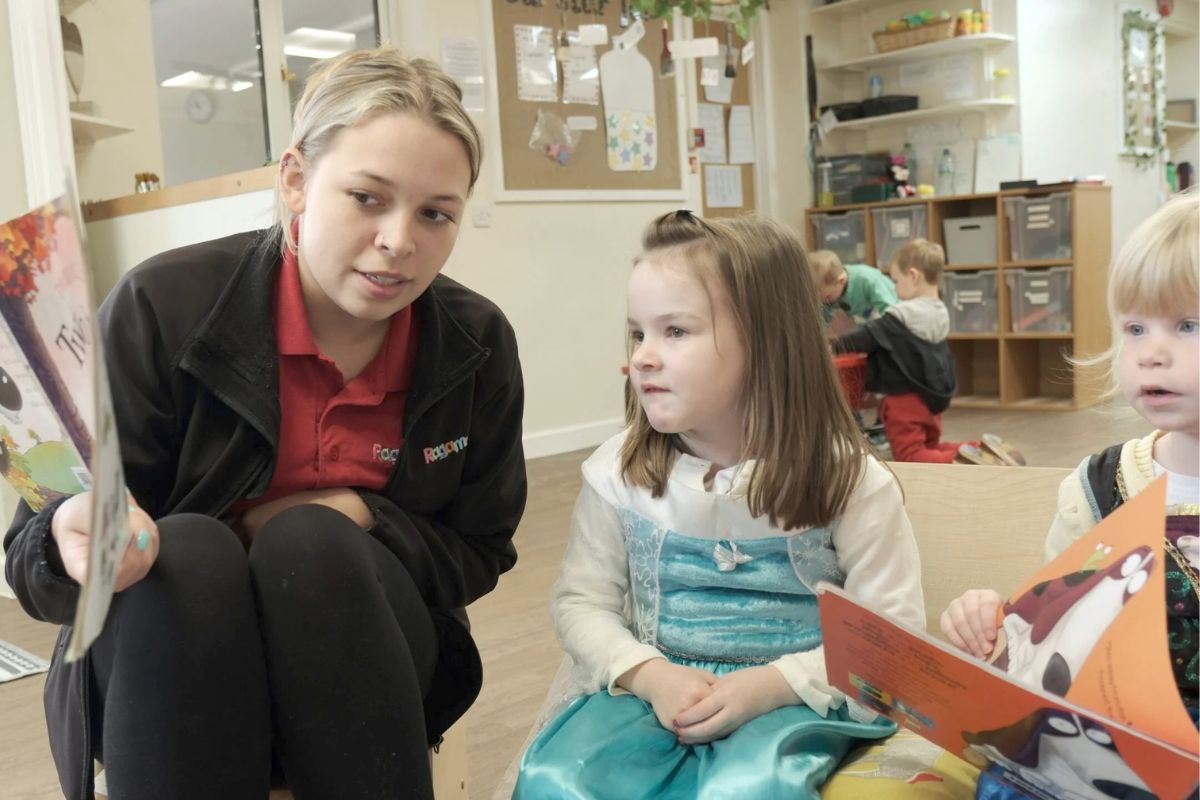Reduced staff, SEND support, and curricula risks “damage to children’s education” say PAC – Sector Response

Public Accounts Committee report challenges DfE assertion that the school system is in good financial health
PAC report on “Financial Sustainability of Schools in England” says “DfE must grasp that it’s not ok for any group of our children to be abandoned in the system it oversees”
In a 2016 investigation the NAO found that on the basis of the Department for Education’s planned funding at that time, schools would need to find significant savings to counteract cost pressures caused mainly by rising pupil numbers and increases in staff costs.
Since then Government has increased funding for schools and provided additional support to help schools improve their financial sustainability, but in October the PAC reported that the new national schools funding formula put in place by DfE has seen a real terms shift in funding from already more deprived areas and schools to less deprived ones.
The Public Accounts Committee today (3 Mar) warns that the DfE’s reliance on national figures that indicate schools are in reasonable financial health is masking “significant variation and challenges for individual schools”.
The Committee has significant concerns on more-deprived schools, measured by proportion of children eligible for free school meals, “faring worse than less-deprived schools under the Department’s new funding system” – while some academy trusts are building up large reserves, meaning a significant amount of funding is not being spent on educating pupils currently in school.
Some of the steps that schools have taken to maintain their finances have adversely affected children’s education: cutting staff, dropping subjects from the curriculum and further reducing the support system for pupils with special educational needs and disabilities (SEND) which “continues to fail many children and remains financially unsustainable”.
The Department for Education also “has little assurance” that extra £4.7 billion committed for school funding in the 2021 Spending Review “will be enough to cover cost pressures including the impact of the COVID-19 pandemic”.

Dame Meg Hillier MP, Chair of the Public Accounts Committee, said:
“DfE’s airy assurances about the healthy books of academies in particular mask some cruel divides between the haves and have nots – unacceptable differences in life chances for our children and young people from the get-go, through no fault of their own.
“But we see the Department’s apparent disregard for the inequalities exposed and exacerbated in the pandemic in the catchup provision debacle, and in all the children and their families still struggling, years after the promised review, with the poor provision for special educational needs and disabilities.
“Rather than the Department blithely looking for laurels to rest on it must grasp that it’s not ok for any group of our children to be abandoned in the system that it oversees.”
Sector Response

Kevin Courtney, Joint General Secretary of the National Education Union, said:
“This report from the PAC highlights problems in the education system that are long standing and have seriously hindered the ability of schools to give every child the education they deserve. Findings point to the larger proportion of maintained schools in financial difficulty compared with academies, and quite rightly criticises the Department for Educations failure to understand why this is happening.
’To get around shortfalls in finances schools have had to balance the books by making decisions that no head teacher wants to make such as cutting educational provision, increasing class sizes, cutting subjects and removing support for pupils with special needs. Add to this the fact that more deprived schools are in greater financial difficulty than schools in more affluent areas it is clear children’s education is being compromised.
‘It is welcome that PAC has instructed the DfE to investigate the committees concerns that some academy trusts appear to be hoarding money rather than spending it on education and has instructed the Department to investigate.
‘The report could not be more damming of special needs education. The fact that children most in need of support are being failed by a system that is poorly funded and resourced is a dereliction of duty and needs to be addressed.
‘The NEU has been raising the same concerns as the PAC for several years. It is high time the Government reverses the cuts made to school funding since 2015. English schools now have the largest primary class sizes this century and secondary class sizes are the highest for more than 40 years. Children and young people deserve better”.

Geoff Barton, General Secretary of the Association of School and College Leaders, said:
“It is not only the Public Accounts Committee that is frustrated by the Department for Education’s blithe insistence that schools have never had it so good. So are school leaders, who have to live with the reality of severely straitened budgets.
“There are many and complex reasons why there is significant variation in this financial picture and, to the DfE’s credit, it is trying to address this situation through the application of a National Funding Formula.
“The weakness, however, is that it is trying to improve the settlement for schools which are historically poorly funded while not having enough money in the pot to uplift the budgets for other schools, often in deprived communities, by the same amount. This has created a situation of winners and losers, with the losers being schools which serve children who need the most support. This is clearly inequitable.
“No school ever wants to curtail provision but there is a point at which there simply is not enough money in the budget to afford to deliver the full range of support that they want to provide. Many school leaders have had to make very difficult choices about where to cut back over the past few years. It is inevitable that this affects staffing levels because this is the most significant cost in a school, and this can affect the breadth of the curriculum and the pastoral support they are able to provide. Added to this is a complicated system of funding for special educational needs support which is utterly dysfunctional and which the DfE has, so far, taken more than two years to review.
“It is not surprising that some academy trusts have built up relatively large reserves. Part of the rationale for the formation of academy trusts is to make groups of schools responsible for thinking strategically about future needs. So, for example, they may decide to build up reserves for capital projects which will benefit their pupils. It is perfectly reasonable for the Public Accounts Committee to ask the DfE for more information about the purpose of reserves. However, it is frustrating that the DfE has apparently neglected to gather this information despite the endless barrage of requests for financial information which it already asks academy trusts to provide.
“What should be clear from all of this is that the school system in England continues to operate under considerable financial pressure. To make matters worse, the post-16 sector is in an even worse state with more than a decade of severe underfunding from the government. None of this is good enough for the children and young people who our schools and colleges are trying so hard to support day in and day out.”

Paul Whiteman, general secretary of school leaders’ union NAHT, said:
“The Public Accounts Committee is right to point out that some schools are much harder hit by underfunding than others – which means some children are getting a worse deal. Children from disadvantaged backgrounds in particular have been the victims of over a decade of underfunding and neglect by government.
“Over the last few years, we have seen a new funding formula that directs money away from the most disadvantaged, a pupil premium policy change that has led to the some of the poorest families not receiving funding they should have been entitled to, and a failure to deliver on long overdue SEND reforms.
“And the government’s investment into education in the last Spending Review only takes us back to 2010 levels, representing a failure to invest in children’s futures for over a decade.
“In light of all that, talk of ‘levelling up’ starts to sound entirely hollow. If the government is to achieve their stated goal of ‘levelling up’, they need to look carefully at the impact their reforms are having and address the variations in hardship the PAC have identified.”
PAC report conclusions and recommendations
7. The Department does not understand well enough why there is so much geographical variation in maintained schools’ financial health and why maintained secondary schools are under particular financial pressure. In the year ending 31 March 2020, 11% of maintained schools were in deficit overall. However, the proportion of maintained schools that reported a cumulative deficit varied considerably between local authorities in England, ranging from 0% to 46%. In 26 local authorities, more than 20% of maintained schools were in deficit. Maintained secondary schools are under particular pressure: more than a quarter of these schools were in deficit in 2019-20, compared with one in ten maintained primary schools. The Department emphasises that the financial health of the school system overall has held up well and that most maintained schools are in surplus. It suggests that there are a variety of possible factors that may be causing the geographical variation in schools’ financial health and the difference between primary and secondary schools, such as historical patterns of funding and the condition of school buildings. It lacks robust evidence, however, and accepts that it needs to do more work to understand better the variability.
Recommendation: The Department should thoroughly investigate the geographical variation in in the financial health of maintained schools, determine the underlying causes and decide whether some schools or local areas need extra support from 2022-23 to be sustainable.
8. The large reserves that some academy trusts are building up mean that a significant amount of funding is not being spent on educating pupils currently in school. In the year ending 31 August 2020, nearly a quarter of academy trusts (22%) had reserve balances equivalent to more than 20% of their annual income. Taken together, academy trusts had a cumulative surplus of £3.1 billion. The average balance per pupil held by academy trusts was £689, up from £608 in 2017/18 and more than double the average balance per pupil held by maintained schools. Academy trusts may build up reserves for a range of reasons, such as when they are planning capital works. Where reserves are not being held for specific purposes, the ESFA considers balances of more than 20% of a trust’s income as excessive given the low level of risk in the academy sector. It asserts that it challenges academy trusts with excessive reserves, particularly if it has concerns about educational outcomes. However, the Department is not in a position to do this effectively as it does not have information on whether academy trusts have earmarked reserves for particular projects.
Recommendation: The Department should write to us, within one month of this report being published, with details of the specific actions it has taken where it has concerns about academy trusts holding significant reserves; and ·investigate those academy trusts with reserves equivalent to more than 20% of their income to establish whether the reserves are justified (including the extent to which they are designated for specific purposes), and write to us within six months with an update on the results of this work and any action it plans to take.
9. We are concerned that financial pressures faced by schools could damage children’s education. Research by Ofsted in 2019 found that a high proportion of headteachers reported reducing staffing levels, narrowing the curriculum and changing how they support pupils with SEND because of financial pressures. We have heard similar examples of our own local schools having to curtail provision, such as cutting teaching assistants, to balance the books. Some of these actions risk harming education. The Department asserts that pupil-teacher ratios and the hours taught in different subjects have remained largely stable at national level. It acknowledges, however, that there is cause for concern about a small number of subjects, such as design technology. We also note that the pupil-teacher ratio has in fact risen in secondary schools. The Department’s school resource management initiatives aim to help schools to squeeze non-staff spending rather than cutting back on education provision. To date, however, it has not properly researched the impact of cost pressures on schools. The ESFA has now committed to carrying out its own study to assess the impact on provision of the measures adopted by schools in response to financial pressures.
Recommendation: In carrying out its research, the ESFA should collect sufficient, reliable evidence on the impact of financial pressures on schools at local level, including on whether they are leading to schools narrowing their curriculum and reducing staffing.
The Department should set out, in its Treasury Minute response, when it plans to publish the results of the ESFA’s research.
10. While we wait for the much-delayed SEND review, the support system continues to fail many children and remains financially unsustainable. In May 2020, we reported that many children with SEND were being failed by the support system and recommended that the Department should, as a matter of urgency, complete its SEND review which it had begun in September 2019. The SEND review has still not been completed, and families continue to be frustrated by the support system. The Department has now committed to publishing the results of the review in the first quarter of 2022, alongside the Schools White Paper. The aim of the review is to improve outcomes for children and young people with SEND. The Department says that, as well as educational attainment, the impact measures will cover life outcomes, such as the number of young people with SEND not in education, employment or training, and health and wellbeing. It is essential that the review is completed so improvements can be made. We are also concerned about the financial sustainability of the SEND system, for example some local authorities are struggling to cover the high costs of places in some private special schools. The Department expects that increased funding, including for more places in state special schools, and extra support for some local authorities with large high-needs deficits, will help to improve the sustainability of the system.
Recommendation: The Department should set out in the SEND review (which it has committed to publish in the first quarter of 2022) what improvements it is aiming to achieve and over what time period, and make clear what specific metrics it will use to assess whether the support system is improving and becoming more sustainable.











Responses